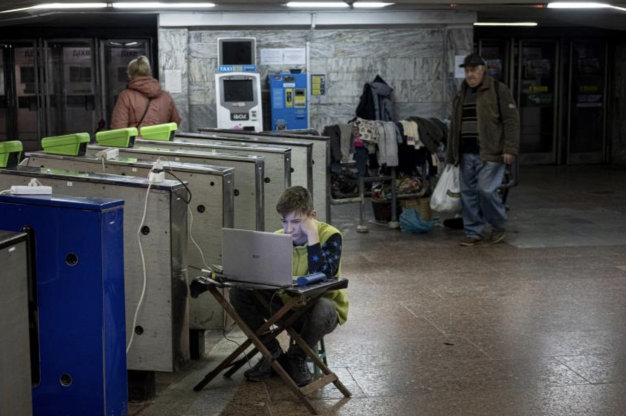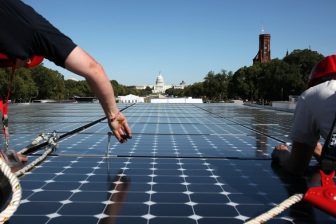
Education disrupted for millions of Ukranian children – UNICEF
The ongoing war in Ukraine has disrupted education for more than five million children, says children’s charity UNICEF.
Calling for increased international support to ensure children do not fall further behind, it says the impact of 11 months of conflict has compounded the two years of lost learning due to the pandemic – not to mention more than eight years of war for children in eastern Ukraine.
Afshan Khan, UNICEF Regional Director for Europe and Central Asia, said: “Schools and early childhood education settings provide a crucial sense of structure and safety to children, and missing out on learning could have lifelong consequences. There is no pause button. It is not an option to simply postpone children’s education and come back to it once other priorities have been addressed, without risking the future of an entire generation.”
The continued use of explosive weapons – including in populated areas – has meant that thousands of schools, pre-schools or other education facilities across the country have been damaged or destroyed. Parents and caregivers are also understandingly reluctant to send children to school due to safety concerns.
‘Education provides a crucial sense of structure’
UNICEF is working with the Ukraine government to help get children back to learning, in classrooms when it is deemed safe, and through online or community-based alternatives if in-person learning is not possible. While more than 1.9 million children were accessing online learning opportunities, and 1.3 million children enrolled in a combination of in person and online, recent attacks against electricity and other energy infrastructure have caused widespread blackouts and left almost every child in Ukraine without sustained access to electricity, meaning that even attending virtual classes is an ongoing challenge.
The situation outside of Ukraine is also concerning, with an estimated two out of three Ukrainian refugee children not currently enrolled in the host country’s education system. There are several factors behind this, including stretched education capacities and the fact that, at the start of the crisis and throughout the summer, many refugee families opted for online learning, instead of attending local schools, as they hoped to be able to return home quickly.
“UNICEF will continue working with the Government of Ukraine and the host countries’ Governments to deliver solutions to help children in conflict areas and those who have been displaced from their homes to continue their education,” added Khan.
‘Integrating Ukranian refugee children into schools’
UNICEF is demanding that Russia stops its attacks on education facilities and other civilian objects, including the energy infrastructure upon which children and families depend. It is also calling for increased support in ensuring children have access to offline learning materials and supplies to ensure they continue learning and can remain connected to their peers and teachers; as well as support for Ukraine’s recovery plan, and efforts to rebuild and rehabilitate schools and preschools.
Meanwhile, in countries that are hosting refugees as a result of the war, UNICEF is asking for prioritisation of the integration of Ukrainian refugee children into national education systems across education levels, especially early childhood education and primary education, with qualified teachers, learning materials and available spaces to support their face-to-face learning, development, and well-being.
“It is important that relevant authorities identify and overcome regulatory and administrative barriers that hinder children’s access to formal education across all levels and provide clear and accessible information to refugee families,” said the charity. “Where access to education system cannot be immediately ensured, UNICEF calls for provision of multiple pathways to learning especially for secondary school-age children,” it adds.




